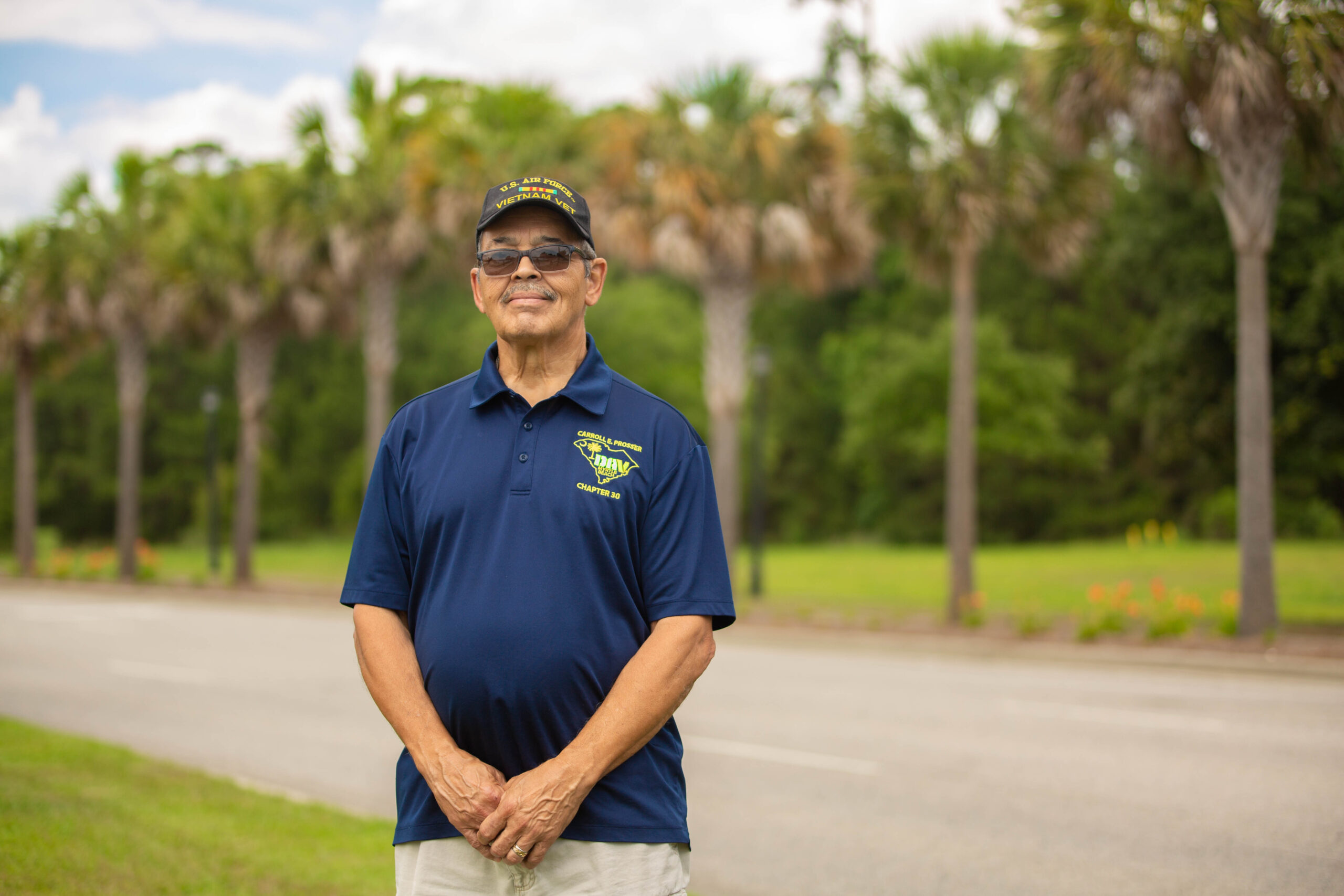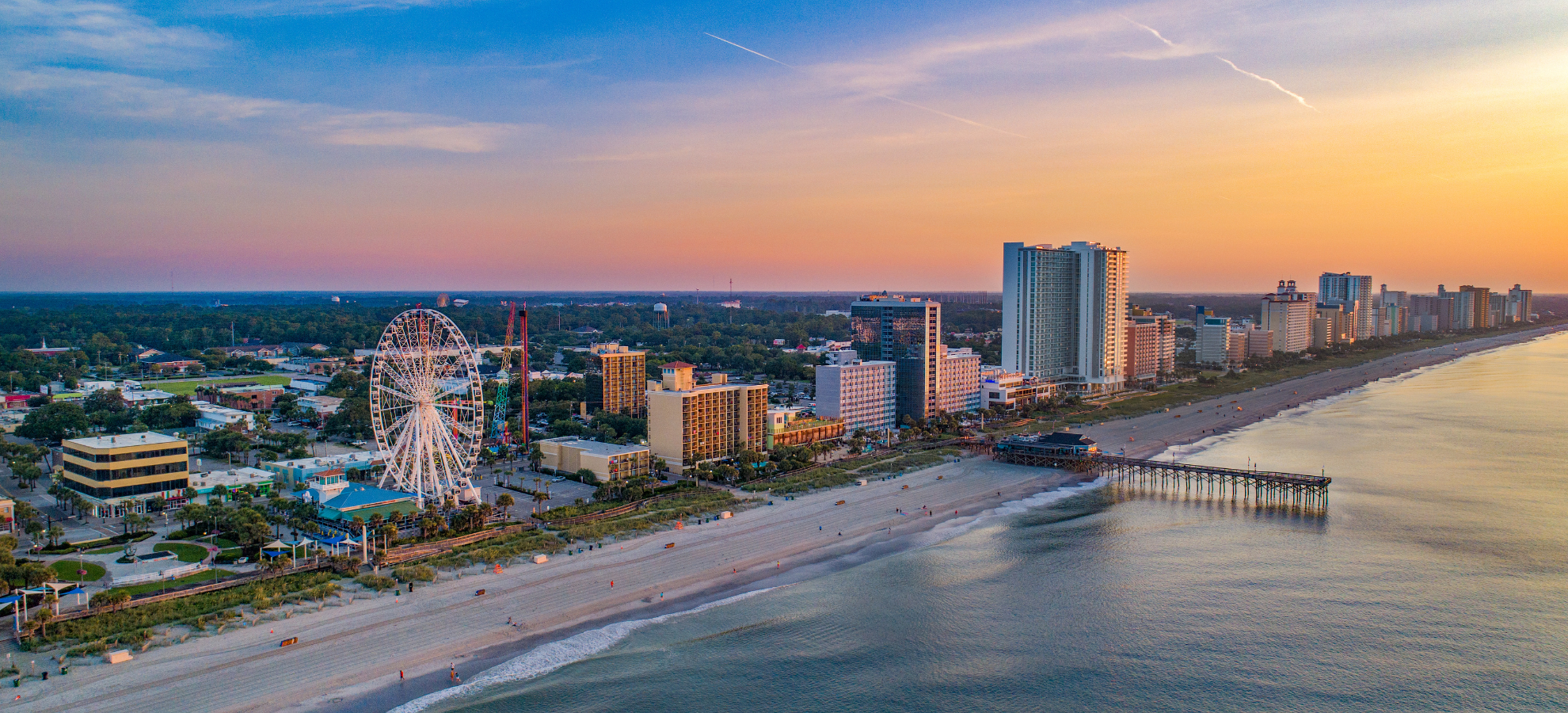Vietnam Veteran, Air Force Security Policeman, Lover of Lightning Bugs
Celebrate Our Veteran gives voice to the stories of the U.S. military veterans living amongst us. The actions of these brave and dedicated people, who have served our country both in active military duty as well as administrative positions, have and continue to contribute to the protection and preservation of us and our country.
We hope that this section of our paper is an opportunity for our community to hear and see veterans with new eyes, and for veterans to receive recognition and honor for their experiences and life journeys.
This month’s Celebrate Our Veteran recounts the story of Jaime Lleras as told in his own words. Today, he lives in Myrtle Beach.
by Melissa LaScaleia
“I was born in Santurce, Puerto Rico, on March 11, 1950. My parents immigrated to the U.S. mainland with me in 1954. I grew up in Brooklyn, NY. In 1968, after high school, I received a draft card to go to Vietnam. I decided to volunteer for the military because I didn’t want to be forced to go to Vietnam as part of the Army.
Back in the ‘60s in major cities, instead of driving, police officers used to do what was called walk the beat— they would walk the neighborhood to make sure all was well. Consequently, they got to know the people and residents; a lot of time, they got to be like family. Growing up, I was inspired by the police officer who walked our neighborhood. I really wanted to be a baseball player, but I told myself that if that didn’t work out, then I would become a police officer too. So when I joined the U.S. Air Force, I enlisted as security police.
I completed my basic training at Amarillo Air Force Base in Amarillo, Texas. And I was stationed at Hamilton Air Force Base in San Rafael, California, north of San Francisco. After one and a half years, I decided to volunteer to go to Vietnam.
I had heard a lot of the security police officers say that Vietnam was a good tour because there was little combat for them, great pay, and no taxes. I kept getting turned down for other places I volunteered— Italy, Germany, Puerto Rico, Spain— so I decided to volunteer for Vietnam.
I was stationed in Binh Thuy Air Force Base, 50 miles south of Saigon. It wasn’t a militarized zone, but we still got hit with rockets and mortars every month. We never got any serious injuries, but a couple of our aircraft did get damaged. It was nothing very serious while I was there.
I was assigned as a security police officer in Vietnam— I was a sergeant E4. I had to make sure that everything on the base was secure because it was vulnerable to enemy infiltration. So, I would drive the base perimeter, hold watch at the towers, and guard the aircraft and personnel. I also worked in the armory, repairing and administering weapons.
One night, as I stood guard on a tower on the perimeter road facing the Bassic River, I saw through my night goggles flashing lights that were going on and off between two trees on the other side of the riverbank. It seemed to me as though some sort of signaling was going on.
So, I reported it to the Combat Security Control desk. A while later, the desk sergeant came back on the radio with an ‘all-clear’ response. That concerned me, because as I kept looking at the trees, I continued to see the signaling. So about thirty minutes later, I called it in again. The desk sergeant checked with the out-post and returned with an ‘all-clear’ response again.
After the third time I called in this activity, a vehicle stopped at the bottom of the tower. It was my flight chief. Upon reaching my post, he asked me to explain to him what I was seeing. Then he took the night goggles and scanned the tree line, grunting as he did so as if he agreed with me.
Then he turned to me and said, “Boy, where are you from?” To which I proudly replied, “Brooklyn, NY, sir,” thinking he was impressed with my skills.
“Brooklyn!” he said. “How old are you?”
“Nineteen sir.”
He admonished me accompanied by prolific swears then asked:
“Are you stupid or just plain dumb?”
“NO SIR!” I replied adamantly, becoming confused and alarmed.
After he shook his head for a moment he asked me, “Boy, haven’t you ever seen a lightning bug?”
“A what?” I asked.
“A lightning bug!”
“NO, SIR.”
He then explained to me what a lightning bug was while laughing at me so hard that he almost fell off the ladder as he left the tower post. After that, I was given the nickname of ‘Lightning Bug’ for about a month. The truth is I had never seen a lightning bug during my childhood in New York City. Roaches, for sure, but not lightning bugs.
Near the base was a town called Can Tho. When we got some time off, many of us hitch-hiked a ride into the small section of Can Tho called Bensimoi, where the local bars were.
One day, the craziest thing happened to me which was also the most serious of my life. While I was in a bar having a few drinks with some of my buddies, a small South Vietnamese kid ran into the bar and out the back exit; he was being chased by an Army MP wielding a Colt 45 up in the air.
After seeing this, we decided to leave. But as I did, I walked straight into the barrel of an M-16 rifle held to my chest by another South Vietnamese. This one was maybe 16 years old and driving a jeep. He kept the gun pointed at me and said in English, “Don’t move!”
I froze in place. It was only until the Army MP let the small kid go, which took about ten minutes, that they left. It was only a few minutes, but it felt like hours and was very scary.
In August of 1972, I was discharged, and then served for two years of inactive duty for a total of six years of service.
After I got out of the military, I kept trying to get employment with the law enforcement in several cities and states, but I kept failing the physical exam. I didn’t know it at the time, but finally understood that I was failing the hearing part of the exam, and perfect hearing is intricately linked to being in law enforcement. As an officer with the military, I was exposed to a lot of loud aircraft; additionally, the rockets and mortars that were constantly being fired all contributed to give me hearing loss. I finally accepted that I could never be a police officer in any state, so I fell back on my publishing background and moved into a different career.
I had attended a technical high school which trained me in printing and publishing. So, from 1972 until 1989, I worked in multiple printing and publishing companies before I became employed by the federal government in 1989.
After I got out of the military, someone convinced me to enlist in the Air National Guard (ANG). In 1982, I enlisted in Washington, D.C. (ANG) as a law enforcement officer and reported to duty one weekend a month and a 15-day annual training period.
After three years, my hearing loss was such that I couldn’t remain in the reserves as a police officer any longer. So I transferred to the Maryland Air National Guard where I spent twenty-one years serving in several capacities. Initially, I was a first sergeant, then a human resources advisor, and finally, I retired as a Wing Command Chief in 2004.
While in the Maryland (ANG), I was working in the federal government with the Government Accountability Office (GAO) in Washington, D.C., and I was the director for share services and mail operations. I retired in 2012.
I wanted to live in Florida, but my wife didn’t like it, and I didn’t like Georgia, so we decided to look at South Carolina and the Myrtle Beach area. We both love it. The area, the community is just great, and people are very friendly to veterans.
I’m currently the commander of the Disabled American Veterans (DAV) Carroll E. Prosser Chapter 30, in Myrtle Beach. I’m also a service officer at the chapter. I help veterans file medical disability claims with the VA. I speak to different veterans’ groups in the community. I’m also a member of the Vietnam Veterans of America.
I’ve always believed that every young man and woman should serve their country for at least one enlistment term (4-6 years) before or after college, so they can receive excellent training, develop their personal and professional skills, take advantage of higher education opportunities, and develop their experience in a skill or profession that they can use in their future, while also supporting and protecting our great country.”
















